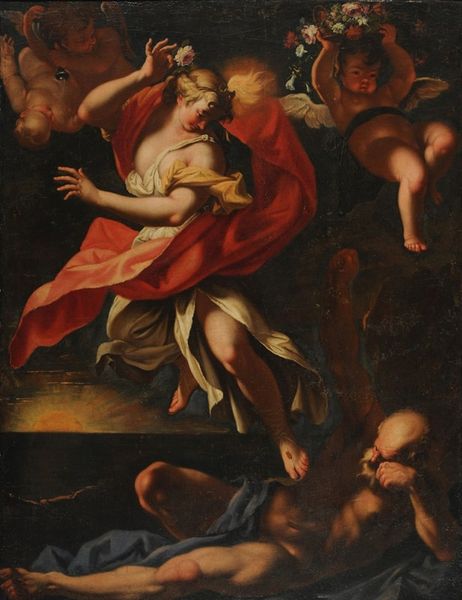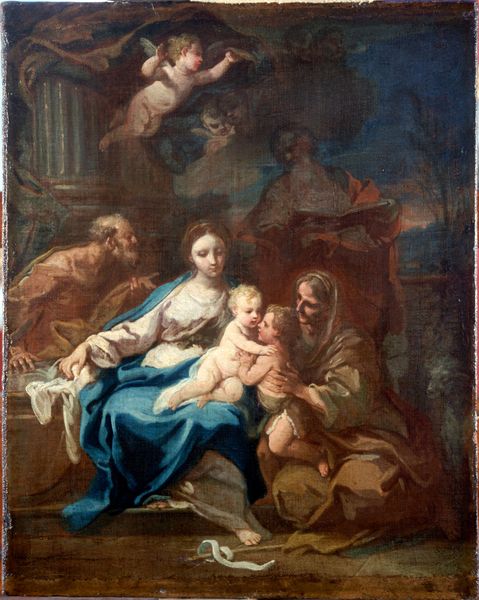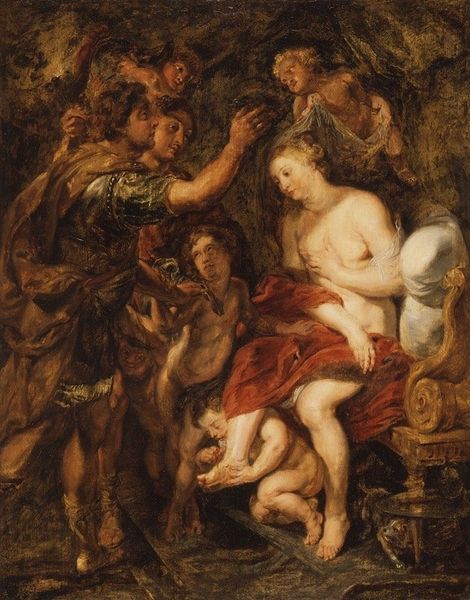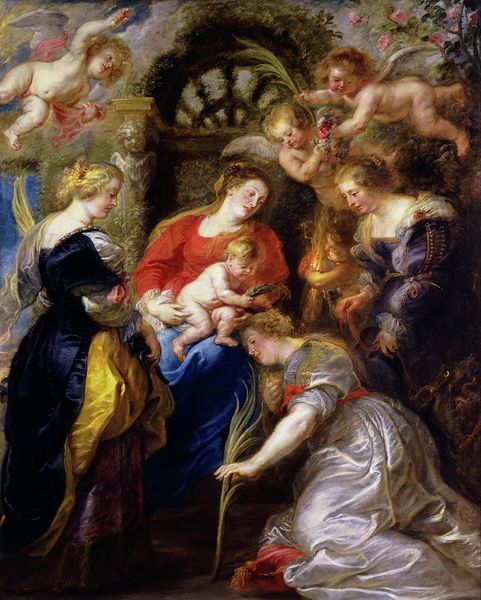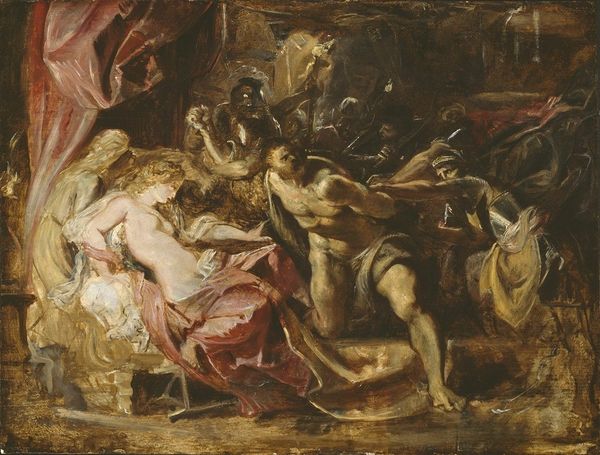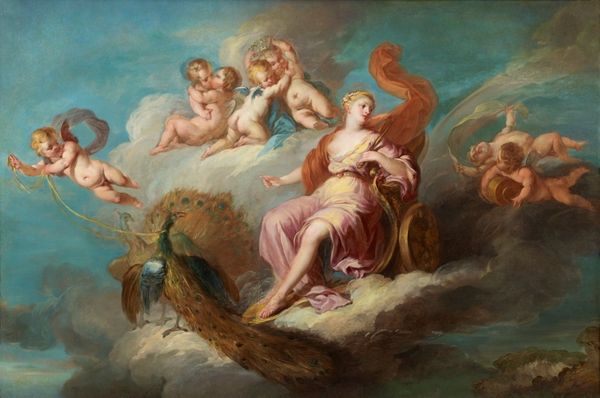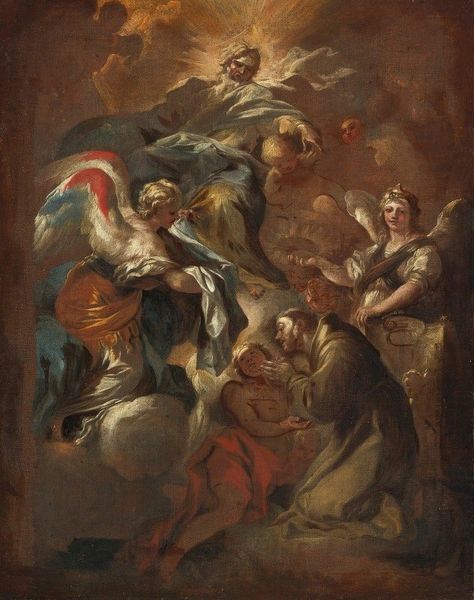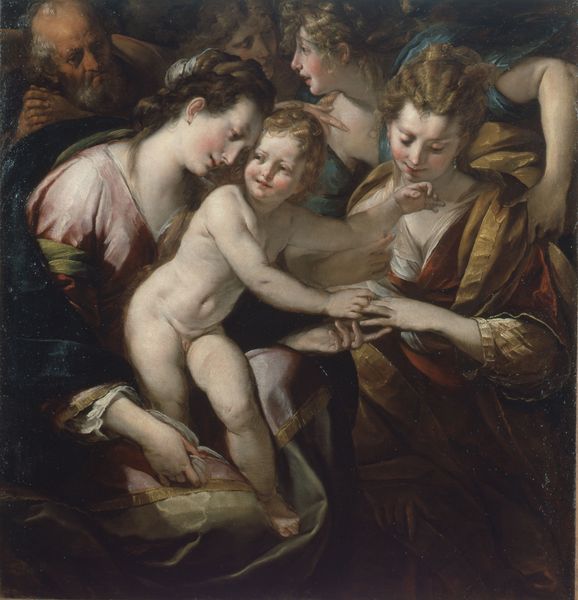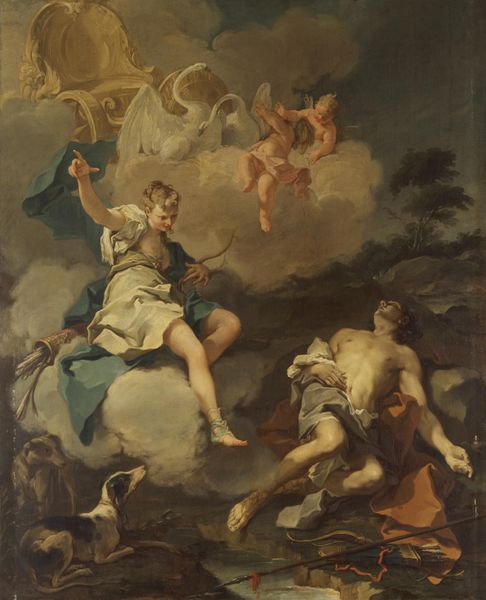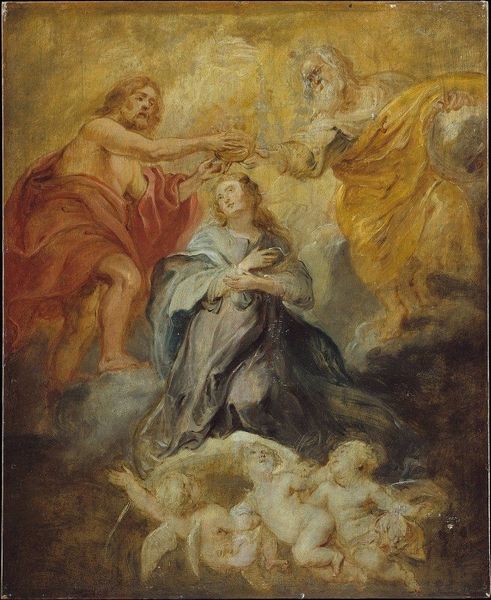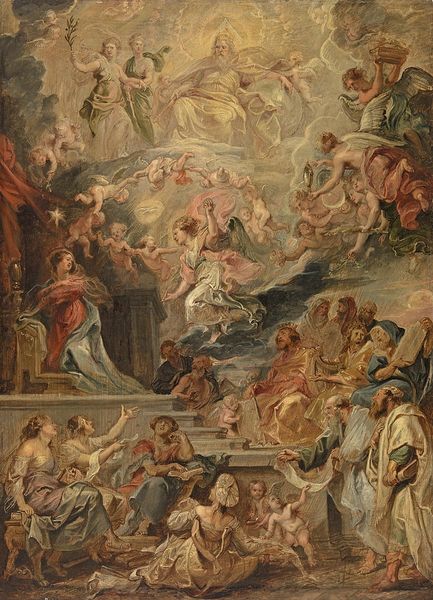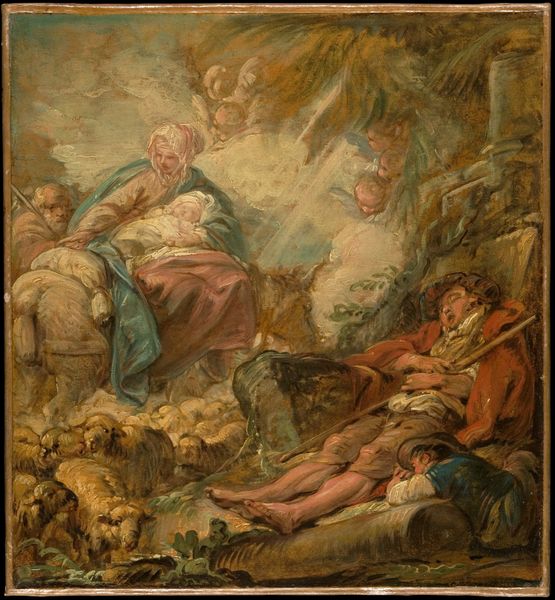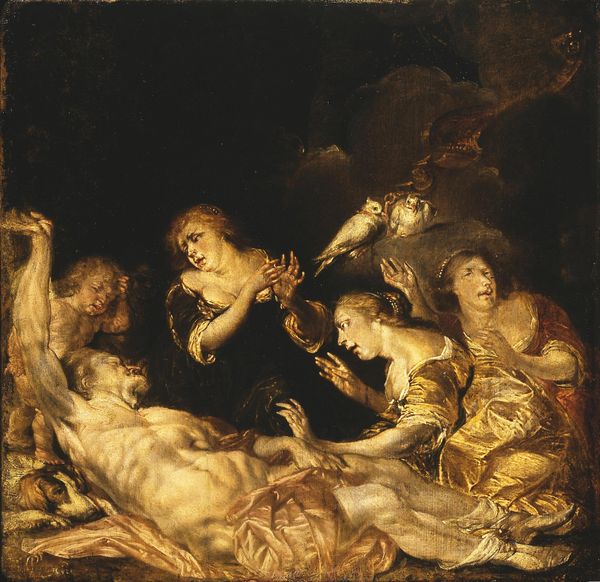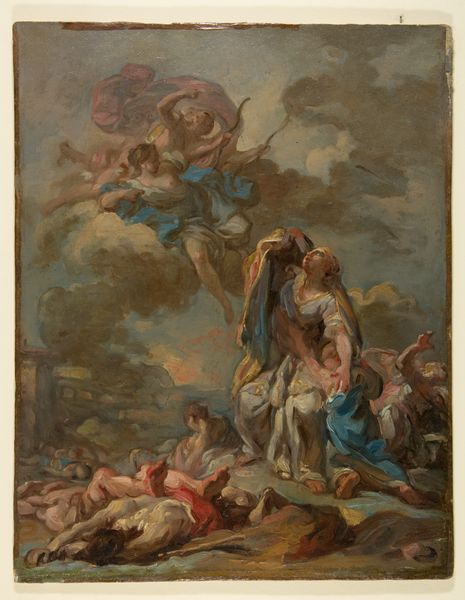
oil-paint
#
allegory
#
narrative-art
#
baroque
#
oil-paint
#
figuration
#
oil painting
#
mythology
#
history-painting
Copyright: Public Domain: Artvee
Peter Paul Rubens created ‘The Union of England and Scotland’, an oil on canvas work, to commemorate the joining of the two crowns under King James I. Painted in the baroque style, the allegory presents a narrative of unity. We see the figures of England and Scotland as women, coming together with Cupid binding them, beneath cherubic figures holding a coat of arms overhead. It is an image of political harmony, yet we can understand this vision through the lens of colonial power and national identity. Rubens, as a court painter, often created works which were not only aesthetically pleasing, but served the political and cultural agendas of his patrons. The painting then becomes a carefully constructed representation of power, where the nuances of identity are flattened in favor of an overarching narrative of unity and strength. Consider the historical and social dynamics which frame this seemingly straightforward allegory. How does the artist negotiate the complexities of national identity and political ambition?
Comments
No comments
Be the first to comment and join the conversation on the ultimate creative platform.
